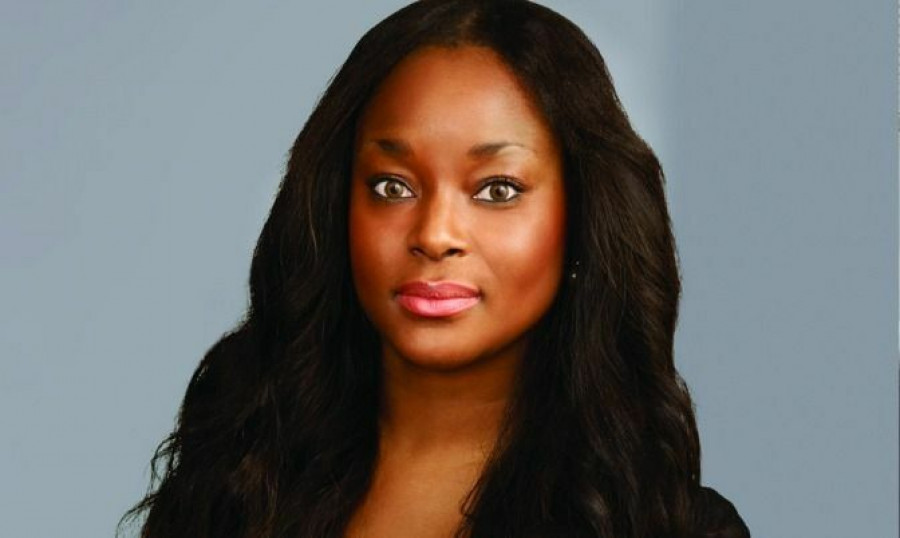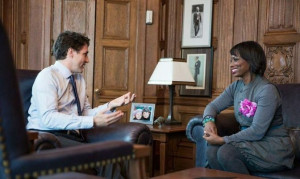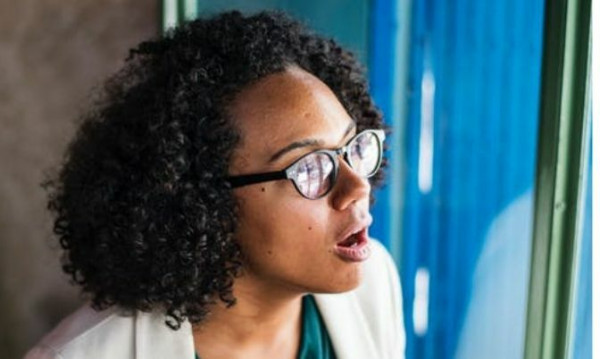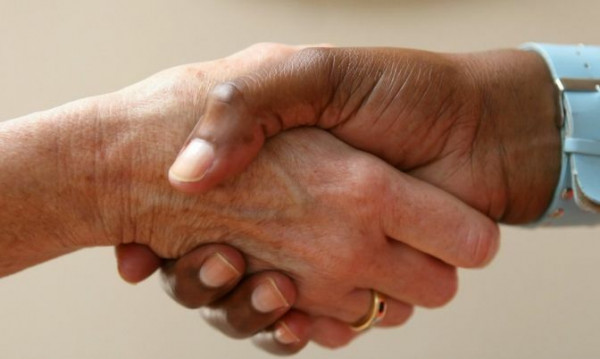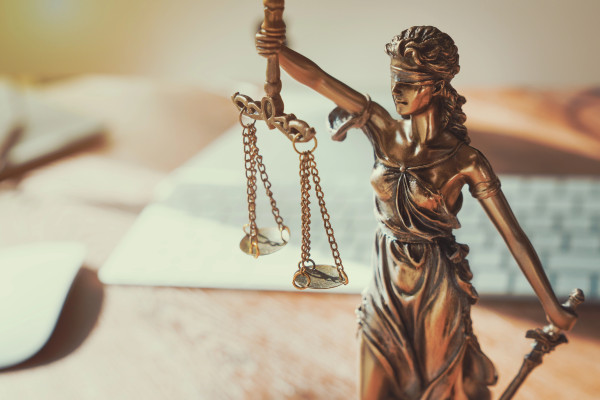She developed a passion for the law while in high school, but getting there wouldn’t be easy. We sat down with Abudulai to find out more about her path to becoming one of the top financial service lawyers on Bay Street. She also gave us some insight into the unique difficulties faced by Black lawyers in the profession, and what she's doing about it.
Listen to the audio version of this article:
What was it like for you while getting qualified as a lawyer?
Like many others, I faced financial constraints during my undergraduate and legal studies. This resulted in me taking a couple years off after I completed my studies at Dalhousie University to work in various positions, including as an internet technical support representative at a call centre.
I had a wide range of employment before and during my undergraduate studies. I recall how I coveted an office position or retail position, but was not successful in obtaining employment on some occasions. I worked at a blueberry picking farm, Tim Hortons, McDonalds, shopping stores in the mall, call centres, and for a couple of provincial ministries. All were valuable experiences.
Balancing education and employment was difficult, as I tried to maintain my academic studies while working, but I had to work to get through undergraduate studies and law school.
In 2009 you joined Cassels, Brock & Blackwell. But just one year later you describe feeling “checked out”. What was going on?
There are a variety of reasons. While I appreciate that many lawyers in their earlier years of practice may experience this type of feeling, mine was attributable to certain circumstances, which led to feeling this way after less than two years of practice. Primarily, in an effort to please everybody and say yes, I was spreading myself too thin and not getting relevant experience on file work. I felt invisible and dejected.
What was it that turned your career around?
Something happened that caused me to assess my situation. I changed my attitude - of feeling helpless and dejected. This was not an overnight occurrence. There were a few contributing factors. I am fortunate to have had several great mentors over the course of my career at Cassels Brock & Blackwell LLP who have all played an important role in my career development. One particular mentor, Alison Manzer, played a pivotal role in shaping my career at the early stages with her guidance, support and encouragement. Specifically, around the time I was assessing my situation, Alison saw me struggling and took an active role in addressing the issues I was facing. When I began practice in 2009, a partner in my practice group who specializes in regulatory matters (and is the first Canadian lawyer to be elected a fellow of the American College of Consumer Financial Services Lawyers) suggested I consider developing a practice in consumer financial services. I increased focus on this area over the last few years (including authoring the Annotated Ontario Consumer Protection Act). Alison also encouraged me to focus on this specialty within the law, which was one of the changes that turned things around.
From your perspective, what issues do you think Black lawyers at large face?
The legal profession has moved at a slower pace in executing diversity and inclusion programs. While progress has been made (diversity and inclusion is at the forefront of conversation and committees have been formed in law firms to address diversity and inclusion initiatives), there are, at times, a lag between discussing the issues and implementing effective programs to address the issue. This is a sensitive and complex issue and a “one size fits all approach” is not an effective remedy, particularly when barriers to diversity and inclusion hinder change: not being offered the same opportunities for advancement, being given a limited role on high-profile files/case work, not being included in key firm or corporate committees etc. These are not unique challenges to Black lawyers, but challenges diverse members of the legal profession face and they are uniquely distinct from those members of the profession that have a higher representation. Barriers include in-group bias (working with people like us or from our own groups), unconscious bias and stereotyping and having no mentor or sponsor. As to unconscious bias and stereotyping, research has shown that Black female lawyers are severely impacted by both race and gender bias and the bias is not necessarily overt (a study by the Law Society of Canada noted that in some instances Black women are perceived as less intelligent, aggressive and less qualified).
Diversity fatigue is also an issue - some are tired of hearing about these issues and some of the issues are not perceived as reality.
The push for a diverse legal profession is not to exclude or penalize others in the profession. Rather, it recognizes that barriers exist that impact the ability for diverse candidates to enter the legal profession and sustain a career and it is a matter of implementing initiatives to address the issues.
Tell me about the diversity committee you co-founded. What started it, and what type of work do you do with it?
Our Diversity and Inclusion Committee was formed because Cassels Brock & Blackwell is committed to having a diverse and inclusive environment. We have had many initiatives, including implementing a policy pursuant to which all members of the firm who share a common background or personal characteristic may form an affinity group to support, champion and mentor one another and others. I am Chair of our Black Affinity Group, which is committed to, among other initiatives, promoting and supporting the recruitment, retention and career advancement of Black members of the firm, increasing awareness and visibility of diversity issues and providing mentoring and guidance. Recently, Cassels Brock & Blackwell hosted a group of high school students from Emery C.I. for a job shadow program that the Black Affinity Group organized. We had a number of members of the firm who volunteered to be involved, including lawyers, legal clerks, members of management, human resources, legal assistants, and our summer and articling students. The day consisted of panels, presentations and a job shadow component where each student was matched with a lawyer.
A lot of professional women feel the pressure to be either a devoted wife and mother or commit themselves to their career. Have you experienced this type of lifestyle polarization?
I’m sure many women have and continue to experience this. I recall a woman in the profession who made a comment to me about my love for cooking and being active in the profession and how she “couldn’t wait” to see how I managed that with children. Her cynical comment being that I can only do what I do because I do not have children. What’s that phrase about judging a person and not having walked in their shoes?
It’s hard enough for women to address the issues that impact us, let alone dealing with hostility from each other. We are all unique. What works for you, does not have to work for me or for her.
How I manage a career and a spouse and children will be up to me if that time comes, notwithstanding I recognize the pressures and issues we face as professional women. For now, I manage my life, in terms of my career, professional affiliations, relationship and my hobbies (reading and anything that has to do with food) on a day by day basis and take it as it comes. Some days are harder than others and sometimes there are implications of decisions I make – this is not unique to me and there are many women who experience this at varying degrees.
What would you say to your thirteen year old self?
I feel that this question sometimes implies regrets or lessons learned to impart onto one’s younger self. Yet, I can’t change the joys or the hardships. I wouldn’t be who I am now without them. So, to thirteen year old Suhuyini, keep going.
